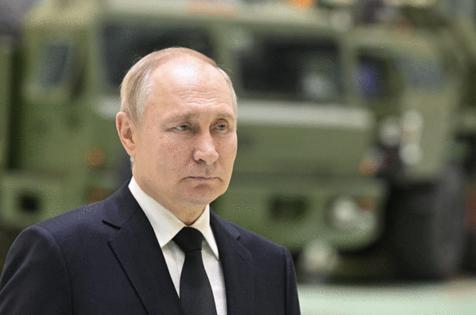Russian asset seizure to aid Ukraine may hinge on G7 meeting
Published in News & Features
WASHINGTON — Washington’s prospects for securing multicountry support to seize Russian assets to support Ukraine could be tested in three weeks at a meeting of G7 leading industrialized nations.
U.S. lawmakers, officials and experts are hopeful that if the G7 finance ministers and central bankers can agree at the May 24-25 meeting in Stresa, Italy, on a plan for confiscating the sovereign Russian financial assets in their respective jurisdictions, it could finally unlock the collective political will needed to do so.
“We need to act together on this, and that’s always been envisioned,” Senate Foreign Relations ranking member Jim Risch said in an interview last week. “I’ve had numerous conversations with our allies and friends on this. Everybody wants to get this done. The devil’s always in the details.”
Congress authorized President Joe Biden to confiscate billions of dollars in frozen Russian currency reserves in the national security supplemental and transfer them to a fund for Ukraine’s reconstruction, as well as economic and humanitarian assistance to the besieged nation. But only an estimated $5 billion, a small fraction of Russia’s total global currency reserves, is held in the United States.
The vast majority of the approximately $300 billion in frozen reserves is held in financial institutions in Western Europe, where governments and the institutions themselves thus far have been more hesitant than Washington about seizing the assets for fear of legal and financial retaliation by Moscow and of destabilizing their own banking sectors.
France, Germany and the European Union are expected to be the parties most in need of convincing.
Risch, R-Idaho, and House Foreign Affairs Chairman Michael McCaul, R-Texas, both authored bills that formed the basis for the provision in the national security supplemental law, which also requires the president to establish an international mechanism to compensate Ukraine for the harm caused by Russia. That directive is expected to be tricky to implement.
Paris’ finance minister has argued that seizing Russian assets would violate international law, while the European Central Bank has said it could harm other foreign investors’ confidence that their own assets will be safe in the EU’s financial system. And Berlin and Tokyo are worried that using Russian reserves to rebuild Ukraine could set a precedent for the seizure of their own foreign-based assets to fund World War II reparations.
Rather than seizing all of Russia’s roughly $300 billion currency reserves and giving it to Ukraine, EU leaders have proposed highly taxing the interest earned from those assets, estimated to yield $3 billion annually, and using it to buy weapons for Ukraine.
“The long and the short of it is that the Europeans have an economic concern, a financial concern, but they’ve expressed it as a legal concern, but the legal concern I think is not legitimate,” Harold Hongju Koh, who was the legal adviser to the State Department during the Obama administration, said in an interview. “They’ve been hiding behind a claim of illegality, which doesn’t hold up. The heart of that claim is that you have to respect the sovereign immunity of (Russian President Vladimir) Putin’s central bank assets even though he has blatantly violated the sovereignty of Ukraine.”
...continued
©2024 CQ-Roll Call, Inc., All Rights Reserved. Visit cqrollcall.com. Distributed by Tribune Content Agency, LLC.







Comments